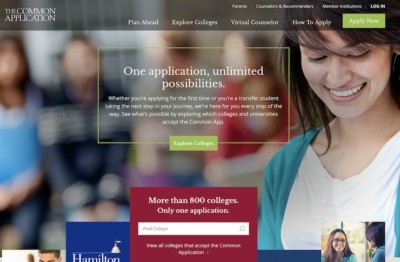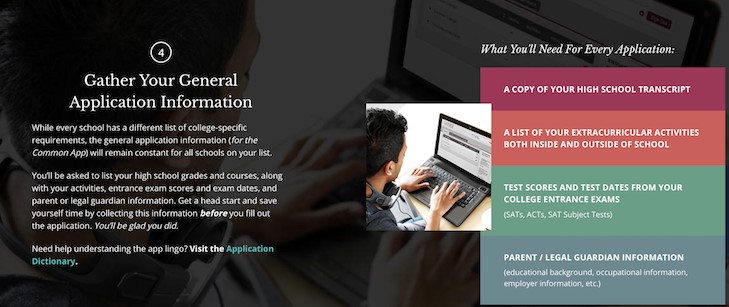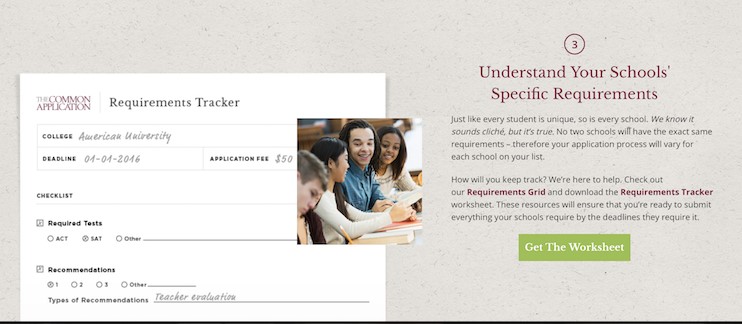You are viewing our site as a Broker, Switch Your View:
Agent | Broker Reset Filters to Default Back to ListWe Need a 'Common App' for Data Feed Approvals
October 29 2018
 Sometimes we just make it too hard to do business in real estate. We spend SO much time and energy talking about herculean tasks like statewide consolidation efforts, yet spent so LITTLE time talking about practical, unsexy solutions that can make our lives so much easier.
Sometimes we just make it too hard to do business in real estate. We spend SO much time and energy talking about herculean tasks like statewide consolidation efforts, yet spent so LITTLE time talking about practical, unsexy solutions that can make our lives so much easier.
During the broker panel Helping Brokers Compete and Innovate: Broker Panel at the this month's RESO Conference in Milwaukee, we discussed a simple innovation we can deliver in our industry that can make a world of difference in helping brokers get access to real estate information with a lot less hassle! While brokers and their tech partners are looking for easier ways to access the RESO Web API, there are even MORE interested in a way to make the process of gaining data feed approvals easier. Today, every MLS's data feed application is different. In some cases, the information needed to gain approvals is not clearly spelled out and it is extremely difficult to find someone at the MLS to answer questions.
Technology companies have to apply to every single MLS individually. Many MLSs require the technology company to submit a separate application for every type of data feed they are looking for and individual applications for every one of their customers in each MLS market. Our best estimate is that there are, conservatively, at least 500 companies all pulling MLSs data feeds of one type or another.
Let's do some simple math to demonstrate the inefficiency of the current process:
Data Feed Application Cost Estimate
Number of data dependent
- Tech companies: 500
- Data Feeds per market: 1
- Total data feeds: 500
- Number of MLSs: 625
- Total number data feeds: 312,500
- Man-hours dedicated to approval: 4
- Total man-hours for data approvals: 1,250,000
- Cost per man-hour (fully loaded): $40
- Cost of attaining data feeds: $50,000,000
If my numbers are even close to reality, we're spending at least $50 million collectively JUST in getting data feeds approved. That does not include any of the costs associated with ingesting, cleaning or distributing the data into applications or building the software itself.
The Common App Analogy
Sometimes it's a lot easier to look at another industry for a relevant analogy to help us forge the path to innovation in our industry.
Today, we're going to look at the college application process. For those that have gone through this stressful and daunting task in the past few years, you are aware of an incredible application system called "Common App." Instead of submitting individual applications across the country, your student can now apply to multiple colleges from one central system.
Initially, just 15 colleges came together to find a way to simplify the college application process. Today, 800 colleges—including Harvard, Cornell, Princeton and hundreds of others—now allow their prospective students to apply through a common online application.
I'm sure the colleges now using Common App did a similar cost analysis to the one I outlined above and decided there has GOT to be a better way!
So what can we learn from the Common App example?
Easy to Understand Instruction and Guidance for Applicants

The Common App clearly articulates the information that is going to be needed by applicants right on the front page of the program. They make it easy for the reader to know exactly what information will be needed before they get into the registration process. Today, there is little, if any, information at all on the public-facing sides of MLS websites that guide a company looking for a data feed for the first time. If you are a not a member of the MLS, it is nearly impossible to get access to the application process or even to find the name of the person to contact to get the process started. In most cases, there is no instruction about the information needed either. To make matters worse, the pricing of the data feeds is all over the map, too.
Why couldn't we have a simple section like this that outlines the information required to submit a data feed application?
Localized Fees ARE Possible
While is it free for a student to apply via Common App, each of the individual colleges are free to assign their own application fee. MLSs could still collect the application fee they have already established even though it would be collected through a central source. The real estate Common App could collect fees and then distribute them back to the appropriate MLS.
Market Level Customization IS Possible

Markets with special requirements refuse to consider the standardization of a data application because it will not allow for market localization. Not true. In Common App, there is a "Requirements tracker" which allows you to see the unique requirements for each of the 800 colleges in the system. We could do exactly the same thing! Ideally, we would limit the number of market-specific approval steps required, though.
Easy to Find Application for Your Local MLS
In Common App, each college can be searched by a search base and a comprehensive, downloadable list. Real estate could do the same thing for all participating MLSs.
That way, a company looking for data feeds could quickly find out if all of the markets they need for a data feed are included within the collaboration.
Who's with me on this? I think we could articulate a requirements document relatively easily. If 15 MLS organizations kicked in seed funding just like the 15 colleges did, we could get this thing off the ground relatively easily, I believe. There are technology companies that have already engineered systems similar to this. We may be able to leverage the work that has already been done and make something happen sooner rather than later!
To view the original article, visit the WAV Group blog.









